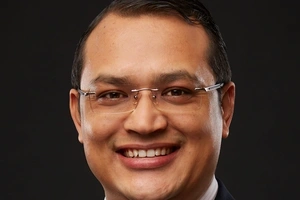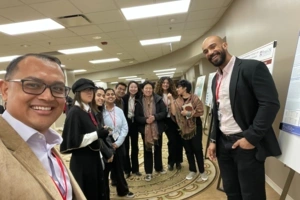Faculty Expert
-
Peter Eckel
Senior Fellow and Director of Leadership Programs, Penn AHEAD
Policy, Organizations, Leadership, and Systems Division
As universities nationwide navigate sensitive issues from free speech and academic freedom to political polarization and activist alumni, Peter Eckel, a Penn GSE senior fellow and higher education management expert, said it’s more important than ever for school leaders to collaborate closely with their institution’s board of trustees.
“Presidents can build a more constructive and engaging relationship with the board and use them as a strategic asset, not just a distant or oversight board,” Eckel said. “The board can be partners — a safe harbor to help understand issues, think out loud, and test ideas.”
Eckel is a renowned governance, strategy, and management expert who regularly consults for American and international universities, including European and Asian institutions. The common thread throughout Eckel’s work is advancing institutional leadership; his skills are needed more than ever.
However, he noted school leaders face ongoing challenges that make an already difficult job more arduous, including increased federal and state governmental scrutiny, changing student demographics, the educational and emotional needs of post-pandemic students, and the growing business of collegiate athletics.
“We’re seeing what was already a complex role in presidential leadership and governance become even more complicated,” Eckel said. “Universities are trying to respond quickly, and the environment is changing fast.”
Eckel guides numerous university boards through oversight, problem-solving, and strategy.
He says many boards want to spend the bulk of their time plotting future strategies to forecast issues and anticipate problems and opportunities, but that’s easier said than done.
“Overly involved boards risk micromanaging and getting ahead of administrators and the faculty; overly distant boards miss opportunities to lend real value,” Eckel and his colleague Cathy Trower recently wrote in Inside Higher Ed.
It’s up to presidents to guide their work and channel well-intentioned board members, many of whom come from corporate America. Eckel and Trower note that board members are most impactful when they apply a lens of higher education and are inclusive of the broader campus community, including faculty and staff.
Eckel and Trower suggest that presidents harness expertise by organizing board members on topics such as technology, workforce, and demographics and promoting collaboration across strategic areas. They added that the president is critical to guiding a board and connecting their work to the campus.
Eckel’s work with university leadership is grounded in his position as co-director of Penn GSE’s Penn Project on University Governance, which engages key stakeholders in higher education to improve governance at universities and colleges through consulting, events, conferences, and coaching. His experiences helped inform a recently published book, Governing Universities in Post-Communist Countries, examining the evolution of university systems in 15 former Soviet republics.
To help guide the next generation of leaders, Eckel teaches and advises in Penn GSE’s new Global Master’s in Higher Education Management, an online program for mid-career professionals and academics seeking to move into administration. The first cohort included students from Korea, Vietnam, China, Russia, New Jersey, Texas, and Philadelphia. The program is recruiting its second crop of students.
He consults public and private institutions nationwide on their strategy and governance, encouraging presidents and boards to work closely together. While there’s no one-size-fits-all model, Eckel said it helps school leaders and their boards to have honest exchanges of information, work on building trust, and collaborate on strong, cohesive policies.
“Boards are going to need better information from leaders, and leaders need to have difficult conversations with boards going forward,” he noted.
To get there, Eckel recommends boards take stock of how they devote their time and resources. Typically, he said boards have four main functions: institutional oversight, accountability, problem-solving, and advocacy.
In his consulting, Eckel surveys board members on how they allocate their time and suggests where they could reorient their efforts. For example, instead of advocating for personal affiliations or priorities, he urges board members to support issues tied to their school.
“They’re working on behalf of the institution, so there needs to be a coordinated agenda,” he said.
Eckel also encourages trustees to present a united front with their presidents — even when they might disagree with decisions or policy.
“They can have the backing of presidents when they have to make unpopular, but necessary decisions,” Eckel said.
Regardless of the differences in student population, culture, and governance, Eckel said administrators and trustees should always aim to strengthen leadership.
“You need to develop appropriate governance for your context,” he said. “The work I try to do bridges practice and research to get people to think differently.”
Media Inquiries
Penn GSE Communications is here to help reporters connect with the education experts they need.







